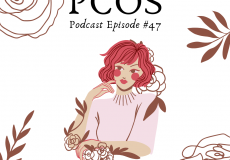Thyroid Health – Part 2
Thanks to everyone for all your beautiful well wishes and congratulations. I had a fantastic day, and a wonderful honeymoon.
This article follows on from the previous article, which discussed the thyroid gland and the differences between and over and underactive thyroid. In this article I am talking about how an issue with the thyroid can cause imbalances in the rest of the endocrine system, in particular the endocrine system.
Thyroid Health
The endocrine system
Endocrine is the term used for the complex system of glands and their secretions (hormones). The endocrine system includes the glands (pituitary, thyroid, para-thyroid, adrenal and pineal) as well as organs and tissues which are able to produce hormones (fat tissue, the hypothalamus, ovaries, testes, pancreas, thymus, kidneys, stomach, liver, small intestine, skin, heart and placenta). There is a cross-over between different systems such as in the digestive system which includes organs also classed as endocrine.
In the previous newsletter I gave you an overview of the thyroid and the differences between hyperthyroidism and hypothyroidism. In this newsletter I want to give you some information about the ways in which the thyroid can affect the endocrine system over all.
The endocrine system is all connected and an imbalance in one particular organ or gland can disrupt everything else. One of the biggest ways that we can see this is looking at the impact of stress. Have you noticed that when you’re stressed you’re more likely to catch a cold (remember the thymus is an endocrine organ and has a big role in our immunity), break out (the skin is responsive to hormones, pumping out more oil to feed the bacteria that causes acne) and your digestive system can get upset too(the stomach, pancreas and liver are all endocrine organs)!
Thyroid health and the reproductive system.
The thyroid gland is another big player in keeping our endocrine system balanced. One of the most common things that an unhappy thyroid will affect is the reproductive system.
In both men and women hypothyroidism can affect libido. In men, they may experience infertility and mpotence. In women they may experienced an irregular menstrual cycle or irregular bleed. Fertility is also greatly affected by the thyroid gland especially in women with autoimmune thyroid disease. It may result in not being able to conceive altogether or an increase in miscarriages. In women of fertile age, autoimmune thyroid disease is the most common cause of hypothyroidism.
How?

- A reduction in thyroid function will leave to elevated TSH, and depressed secretion of dopamine, leading to elevated prolactin levels.
- Elevated prolactin levels, also known as hyperprolactinaemia is implicated in 1-3% of women with problems ovulating.
- Hypothyroidism interferes with an important hormone for the development of the egg and ovulation – gonadotrophin-releasing hormone (GnRH).
- Hypothyroidism can lead to a delay in luteinising hormone (LH) which causes ovulation and stimulates the secretion of progesterone. Because of this is can cause a reduction in progesterone synthesis.
- Thyroid antibodies which can be present in both hyperthyroidism and hypothyroidism can affect fertility due to it’s impact on implantation and increasing the risk of miscarriage. In some people antibodies
can be present without having any signs of thyroid dysfunction. Thyroid antibodies can be managed with herbs that modulate the immune system.
Thyroid dysfunction affects the hormones needed for healthy egg development and ovulation, which affects fertility and creates an imbalance in other reproductive hormones.
If you are having difficulty conceiving it is important to assess thyroid function and screen for the presence of antibodies to rule out any complicating involvement from this gland.
If you believe that you have a thyroid problem, don’t despair. We can assess for and manage a thyroid imbalance using safe, effective natural remedies.
[fb_button]









